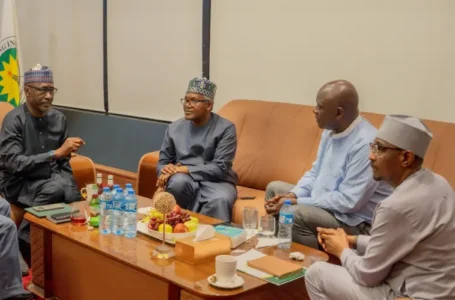Former US President Donald Trump Shot But Escapes Assassination Attempt
In the wake of singer Ilerioluwa Oladimeji Aloba’s, popularly known as Mohbad, untimely demise, a harrowing saga has unfolded, shedding light on an issue that has long been a stain on our society—the mistreatment of women after their partners pass away. The videos that have recently surfaced, showing Mohbad’s family members attempting to seize his estate from his grieving wife, Omowunmi, are nothing short of heartbreaking and expose a deep-seated issue that needs urgent attention and reform.
It is disheartening to witness the vile actions of distant relatives who, even before Mohbad’s final resting place is prepared, have begun scheming to take everything away from his wife. Such behavior is a glaring testament to the unfortunate reality faced by countless widows in our society. The actions of those involved in this dispute raise serious questions about our culture, traditions, and the lack of protection for widows.
The elderly man who was captured on video casting doubt on Omowunmi’s trustworthiness exemplifies a dangerous mindset that persists in our society. His words, “Don’t trust the wife,” convey a disturbing stereotype that has unfairly plagued widows for generations. Instead of offering support and solace during this difficult time, such statements further victimize a grieving woman who has just lost her husband.
Equally troubling is the group of individuals who were recorded planning to forcibly seize Mohbad’s properties from his wife. This blatant disregard for Omowunmi’s rights and well-being is not only unjust but also criminal. The actions of these individuals highlight the urgent need for legal reforms to protect widows from such exploitation.
Another woman was captured criticizing Omowunmi’s burial arrangements, insinuating that the wife had not honored her husband adequately. Such judgments are not only cruel but also entirely irrelevant at a time of profound grief. It is crucial to remember that every family has its unique way of mourning, and imposing judgment in such moments is not only disrespectful but also insensitive.
The reactions on social media to these distressing videos demonstrate that many people recognize the injustice being done to Mohbad’s wife. However, awareness alone is not enough. We must address the root causes of such mistreatment and take concrete steps to protect the rights of widows across our society.
Firstly, legal protections for widows must be strengthened to prevent their exploitation and disenfranchisement. Laws should clearly define the rights of widows regarding inheritance, property, and custody of their children. Additionally, there should be mechanisms in place to ensure that these rights are enforced and protected.
Secondly, societal attitudes towards widows must change. The stereotype that widows are inherently untrustworthy or responsible for their husband’s death is baseless and harmful. Education and awareness campaigns can play a pivotal role in challenging these damaging beliefs and promoting empathy and support for widows.
Finally, we must encourage and provide avenues for widows to build support networks and access resources that can help them navigate the challenges they face after their partner’s death. Community organizations, governmental initiatives, and NGOs can all play a role in providing widows with the assistance they need to lead independent and fulfilling lives.
The tragic situation surrounding Mohbad’s estate dispute serves as a stark reminder of the urgent need for change in our society’s treatment of widows. We cannot continue to stand by while widows are victimized, exploited, and denied their rightful inheritance. It is time for us to collectively work towards a more just and compassionate society where widows are treated with the respect and dignity they deserve, especially in their moments of vulnerability. Let us hope that Mohbad’s unfortunate situation can become a catalyst for positive change in how we treat our widows.










